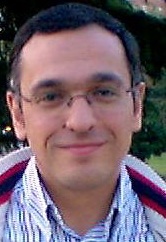Rationale
The complexity and specificity of e-Learning projects requires the adaptation of software design and development methodologies and tools (e.g., agile methodologies, model-driven techniques, domain engineering approaches, web application frameworks, etc.) to the particular requirements of the e‑Learning context. Likewise, it is possible to find ad-hoc tools and methodologies specifically conceived for e-learning (e.g., production of learning contents by multidisciplinary groups, application of e-learning recommendation and standards, formative assessment approaches, etc.). This raises a new emerging discipline of e-Learning Software Engineering, which addresses all the aspects of the systematic conception, design, development and maintenance of e-Learning solutions.
However, Software Engineering concerns usually play a secondary role in typical e‑Learning scientific conferences, since these events are usually more focused on pedagogical and user-centered aspects of advanced technologies and educational systems than in how these technology and systems can be actually developed. Thus, aspects like modeling, design, project planning, life-cycle, etc. are barely addressed or treated as collateral matters.
This track hosts the 4th International Workshop on Software Engineering for E-Learning (ISELEAR’13). This workshop is focused on all the Software Engineering aspects of the e-Learning application domain. ISELEAR’13 gives an international projection to the ISELEAR workshop series, which is consistent with the follow-ups of the three first editions as open-call special issues on e-Learning Software Engineering in reputed international journals (UPGRADE, Journal of Research and Practice in Information Technology, Science of Computer Programming…)
Topics
Topics of interest include but are not limited to:
- Software Requirements Engineering in eLearning
- Software architectures, modeling, specification, design and programming of eLearning systems
- Software technologies applied to the development of complex eLearning systems
- Management of multidisciplinary teams of instructors, domain experts, and developers in the production and maintenance of e-Learning systems, applications and content.
- Testing, verification and validation of software in eLearning
- Software Quality Assurance in eLearning
- Empirical methods in E-Learning Software Engineering
- Model-Driven Software Engineering for e-Learning
- Domain Analysis and Domain Engineering for e-Learning
- Software Language Engineering and e-Learning
- Practical experiences and lessons learned
Paper language
English
Presentation
The workshop will be organized in several sessions. Each accepted paper must be presented by at least one author. Each presentation will be followed by questions and discussions moderated by the session chairs. As in previous editions, the workshop will also include an invited talk and a panel session.
Language: English will be the official language for all the presentations and discussions.
Submission
Submission dates: http://teemconference.eu/2013/dates/
Submission format: http://teemconference.eu/2013/submission/
Submissions must be done through https://www.easychair.org/conferences/?conf=teem2013, choosing this track before to proceed.
Track Scientific Committee
Workshop chairs:
Dr.José Luis Sierra Rodriguez (Complutense University of Madrid , Spain)- Chair
Dr. Antonio Sarasa Cabezuelo (Complutense University of Madrid, Spain) – Chair
Program Committee:
Natalia Adriano (National Technological University, Argentina)
Lilia-Cheniti Belcadhi (University of Sousse, Tunisia)
Luca Botturi (SUPSI, Italy)
Christos Bouras (University of Patras, Greece)
Félix Buendía (Technical University of Valencia, Spain)
Christophe Choquet (University of Maine, France)
Miguel Ángel Conde-González (University of León, Spain)
Francisco José García Peñalvo (University of Salamanca, Spain)
Carina González (University of La Laguna, Spain)
José-Ramón Hilera (University of Alcalá, Spain)
Georgios Kambourakis (University of the Aegean, Greece)
Maha Khemaja (University of Sousse, Tunisia)
Martín Llamas (University of Vigo, Spain)
Ivan Luković (University of Novi Sad, Serbia)
Juan Manuel Dodero (University of Cadiz, Spain)
Iván Martínez-Ortiz (Complutense University of Madrid, Spain)
Valérie Monfort (University of Paris 1 – Panthéon Sorbonne, France)
Marco Mori (University of Namur, Belgium)
Antonio Navarro (Complutense University of Madrid, Spain)
Miguel-Angel Redondo (University of Castilla-La-Mancha, Spain)
Alvaro Reis Figueira (University of Porto, Portugal)
Miguel Rodríguez Artacho (National Open University, Spain)
Pilar Rodríguez (Autonoma University, Spain)
Miguel-Angel Sicilia (University of Alcalá, Spain)
Vytautas Štuikys (Kaunas University of Technology, Lithuania)
Ángel Velázquez (Rey Juan Carlos University, Spain)
Roberto Willrich (University of Sta Catarina, Brasil)
(To be completed)
Special Issue
Selected papers will be invited to submit extended versions to IEEE RITA and IJEE journals
More info
 Dr. José Luis Sierra Rodríguez
Dr. José Luis Sierra Rodríguez
Fac. Informática. Universidad Complutense de Madrid
C/ Profesor José García Santesmases s/n
28040, Madrid
Spain
 Dr. Antonio Sarasa-Cabezuelo
Dr. Antonio Sarasa-Cabezuelo
Fac. Informática. Universidad Complutense de Madrid
C/ Profesor José García Santesmases s/n
28040, Madrid
Spain

